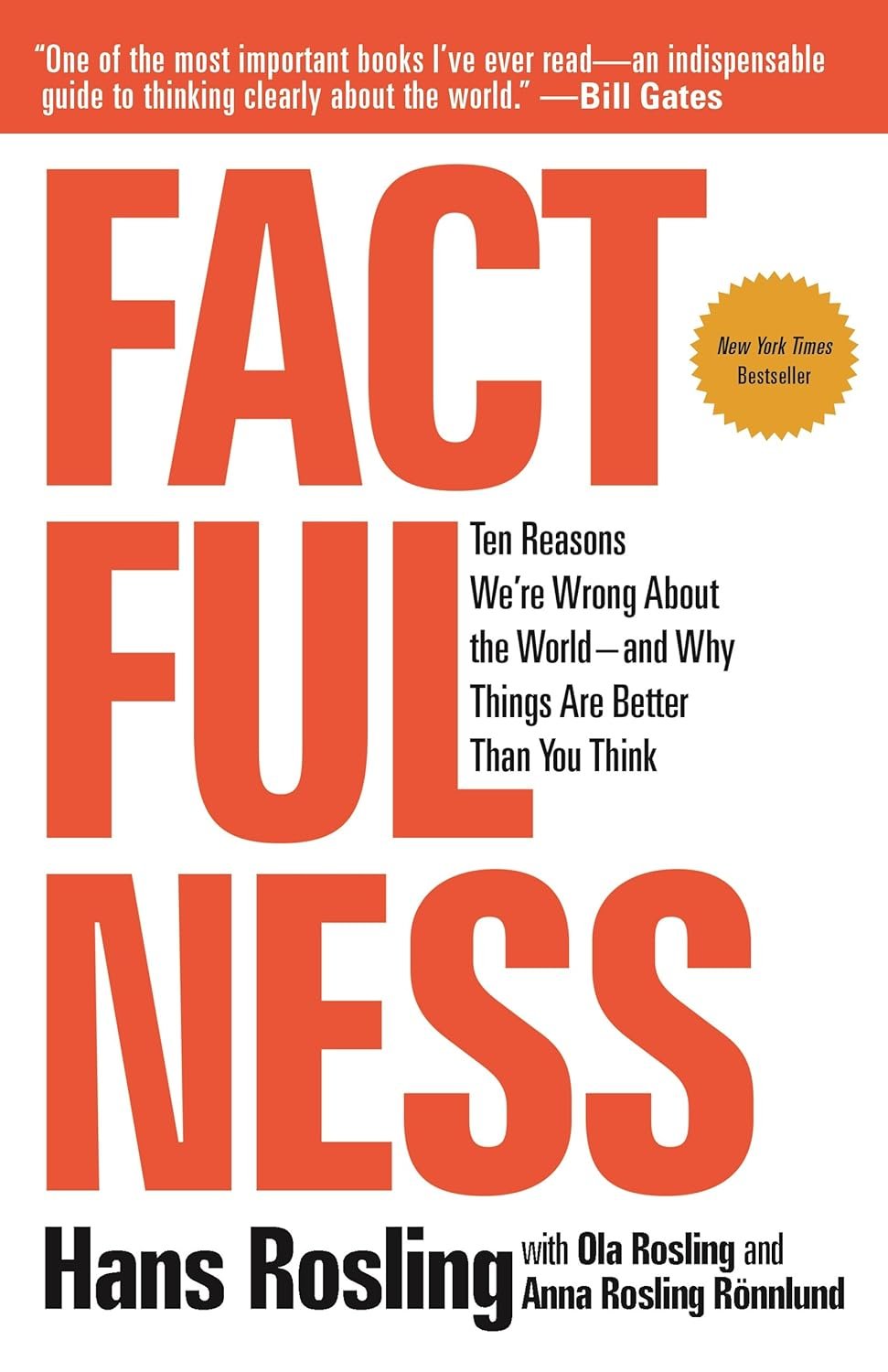Factfulness by Hans Rosling
The past can never kill us; only the future can. We are coded to view what hasn’t happened as high risk and yet, our world keeps getting better and better. Humans are coded with negativity bias coupled with an odd dose of nostalgia bias for the past. This causes us to see the world as worse than it is even when it’s gotten better.
Hans Rosling breaks down the facts of how we live in the best of times even when things seem crazy. It’s an important topic that is explored by Kira and Alex in Chapter 12: Technological Revolution in Paradox: Book One of The Singularity Chronicles. In concert with Steven Pinker’s book Enlightenment Now you’ll be pleasantly surprised at how much the world has improved.
Check out the essay, Apocalypse Always on the Polymathing Being Substack which explains the psychology around why that’s so counterintuitive.
Original price was: $20.00.$0.00Current price is: $0.00.
Product Details
Factfulness: Ten Reasons We’re Wrong About the World—and Why Things Are Better Than You Think by Hans Rosling is a powerful antidote to the pessimism and negativity that dominate our understanding of the modern world. Rosling, a celebrated statistician and public health expert, uses hard data to show that, in many important ways, the world is improving. He challenges ten common cognitive biases that distort our perception of global progress and encourages readers to adopt a fact-based worldview. By understanding the reality behind global trends, we can make better decisions and take more meaningful action.
Key Takeaways
- Cognitive Biases: Rosling identifies ten common biases—such as the gap instinct, negativity instinct, and straight-line instinct—that cause us to misunderstand global progress and focus on worst-case scenarios.
- Fact-Based Worldview: Rosling emphasizes the importance of basing our understanding of the world on facts rather than fear or emotional reactions. He encourages readers to rely on data and critical thinking to form opinions about global trends.
- Global Progress: Despite popular belief, global poverty has decreased, life expectancy has increased, and child mortality has dropped significantly. Rosling presents these positive trends as evidence that the world is on an upward trajectory, even if we are often unaware of it.
- The Urgency of Understanding Facts: Rosling argues that adopting a fact-based worldview is not only intellectually honest but essential for addressing the most pressing challenges of our time. With a clearer understanding of reality, we can focus on meaningful actions to continue driving progress.
Why It Matters
For anyone involved in decision-making, policy, or leadership, understanding the true state of the world is essential for making effective choices. Factfulness provides a framework for overcoming cognitive biases and developing a fact-based approach to problem-solving. This aligns perfectly with Polymathic Disciplines’ commitment to using critical thinking and data-driven approaches to tackle complex challenges. It’s even part of a science fiction exploration into AI and what it means to be human in Paradox: Book One of The Singularity Chronicles
Actionable Insights
- Challenge your cognitive biases by questioning assumptions and relying on data to inform your opinions.
- Use Rosling’s fact-based worldview to create strategies and policies that focus on long-term progress rather than short-term pessimism.
- Encourage your organization to adopt a culture of critical thinking, using facts and data to guide decisions and avoid knee-jerk emotional reactions.
- Read more about the psychology behind our fear of the future with Apocalypse Always at Polymathic Being






Reviews